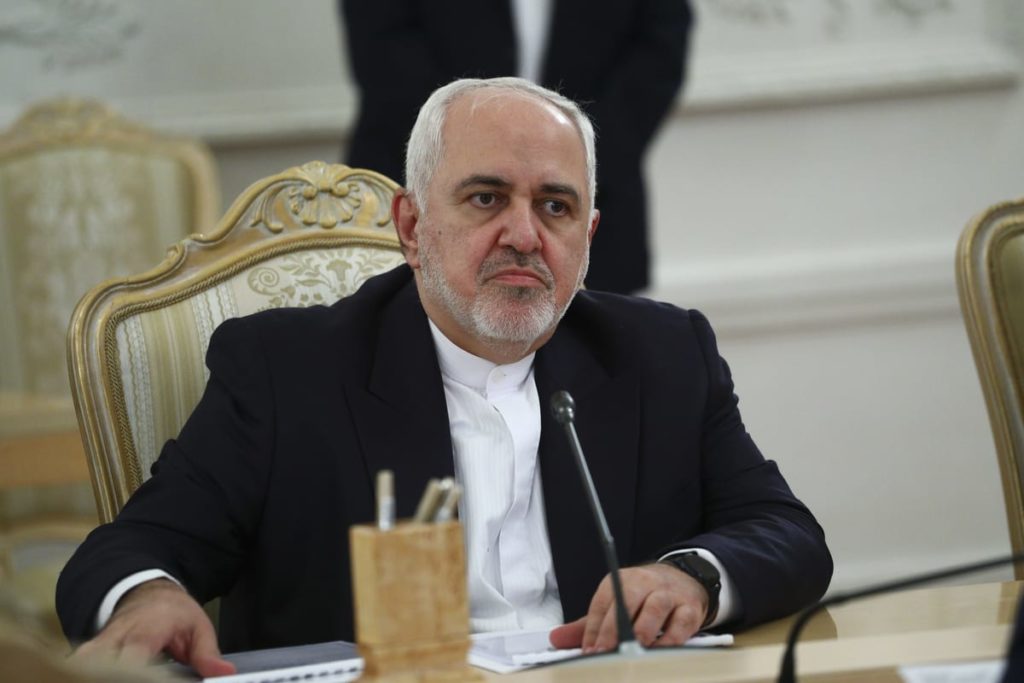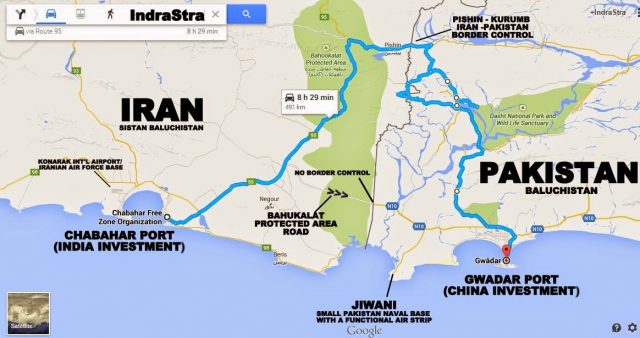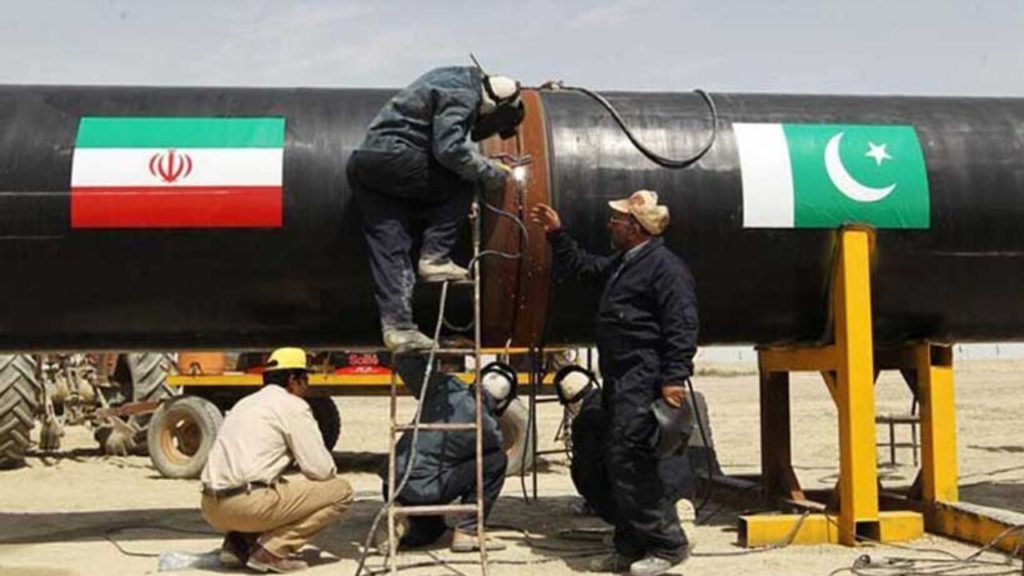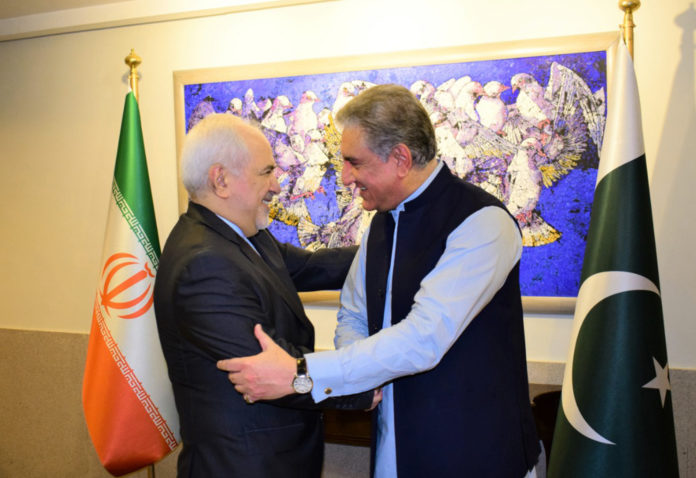The Importance of FM Javad Zarif’s Visit to Pakistan
There is no gainsaying to the fact that the geostrategic, geopolitical and geo-economic factors have, indubitably, always played a pivotal role in bringing states together so as to maximise their socioeconomic and security interests. On the same line, both Pakistan and Iran, due to their geographical contiguity and long-lasting religious, political and cultural ties, share a range of convergent economic interests and are also facing similar security challenges in the region.
Since both Pakistan and Iran have shared objectives in the region, this makes the recent visit of Foreign Minister Zarif a critically important. Iran has always held extensive and meaningful discussions with Pakistan in the wake of dangerous moves by America in the Persian Gulf. The Iranian leadership is fully aware of Pakistan’s critical role in the district, which is why Tehran has decided to consult Islamabad on the evolving security crisis in the shifting waters of the oil-rich region. After having arrived in Islamabad, Foreign Minister Zarif disclosed, “I have come to Pakistan for consultations, as dangerous steps (by America and some other Middle Eastern powers) have been taken in the region.”

De-escalating Tensions in the Gulf
Foreign Minister Zarif’s visit to Pakistan came against the backdrop of heightened fears of a clash between America and Iran. As the crisis is brewing in the Persian Gulf, where the US has deployed a naval aircraft carrier, B-52 bombers at an airbase in Qatar and F-15 jets and dispatched thousands of soldiers in the region. The Trump administration has adopted a war-mongering posture by sending an aircraft carrier and a bomber taskforce to the region to goad Iran into re-negotiating the JCPOA and constraining Iran’s ballistic missile programme. What should not be forgotten is that Iran’s ballistic missile programme is what that protects the Islamic republic from Israel’s aggressive moves in the region.
In the past, Uncle Sam disruptively adopted the policy of ‘heavy-lifting’, ‘strategic realism’ and gunboat diplomacy to threaten rival countries, instigate regime changes and do ‘social engineering’ in East Asia and the Middle East and North Africa (MENA). What Washington should keep in mind is that the globe is fast transforming from the uni-polar world (of the 1990s) to the multi-polar one (since 2005), with rising poles such as China and Russia.
Presumably, America cannot continue resorting to off-shore balancing (the strategy in which America uses favoured regional powers to check the rise of potentially-hostile powers) and onshore balancing (the deployment of gunboat diplomacy and the reckless use of force to change regimes) in the Middle East and South Asia, given the gradual but steady rise of assertive China, resurgent Russia is also back from the death of the Cold War.
Pakistan has always tried to play the role of a mediator to defuse escalatory tensions between Iran and Saudi Arabia in the Gulf as seen by the visit of former army chief Raheel Sharif and erstwhile Prime Minister Nawaz Sharif to Tehran and Riyadh in January 2016 with the intent to scale down the ominous tensions between Iran and Saudi Arabia. The limited employment of shuttle diplomacy by the Pakistani leadership immensely helped calm down the mud-slinging and saber-rattling between Riyadh and Tehran back in 2016. Before that, Islamabad had made prodigious strides in normalizing stalled ties between the two countries in 1997, and also effectively played the same role during tensions between Iran and Iraq.
Prime Minister Imran Khan has probably tried to play a mediating role to persuade the Saudi leadership, on the sidelines of the OIC’s 14th summit in Makkah, to normalize the tensions with Iran. During his visit, the Iranian foreign minister had likely sought Pakistan’s diplomatic assistance to convey Iran’s position to the Saudi leadership that Tehran does not want any escalation of tensions in the Persian Gulf and does not have any intention to disrupt oil supply route via the strategically-important Strait of Hormuz.
However, it seems somehow difficult for Pakistan to effectually play the role of a mediator after the Saudi bail-out package to the PTI government to cushion Islamabad’s faltering economy. If a mediator is economically or militarily reliant on one of the disputing countries, the mediating country tends to sorely lack room and requisite sway to bring the feuding states to the negotiating table. “Pakistan does not possess the ‘requisite’ influence over Saudi Arabia and Iran,” says Dr. Huma Baqai, an Associate Professor at the Institute of Business Administration (IBA), Karachi.
The underlying reasons behind this include, inter alia, Islamabad’s internal economic crisis, tilt towards Saudi Arabia and diplomatic issues which have made it quite difficult for Pakistan to practically change the behaviour of Crown Prince Muhammad bin Salman towards de-escalating the drifting tensions in the Gulf. “If tensions in the oil-rich Persian Gulf escalate, Tehran would wish Pakistan to stay largely neutral, while Riyadh would want Islamabad to side or partner with it,” says Dr. Baqai “but Pakistan should endeavour to balance its relationship with the two countries,” she suggested.
Whatever, it is in Pakistan’s greater national interest to play the role of a peace broker between Saudi Arabia and Iran so that the ongoing escalating and burgeoning tensions in the Gulf can be contained from drifting out of control. Pakistan’s Foreign Minister Shah Mehmood Quraishi, has already advised the parties involved to resolve the tensions by means of diplomatic negotiations. He categorically stated how Pakistan wanted “resolution of all outstanding issues through diplomatic engagement”.
“We expect all sides to show restraint, as any miscalculated move can transmute into a large-scale conflict,” Foreign Ministry spokesman Mohammad Faisal told a weekly news conference hours before the Iranian foreign minister landed in Islamabad.

Gwadar and Chabahar Ports
In the changing dynamics of the burgeoning sea trade, Pakistan’s Gwadar Port and Iran’s Chabahar Port would play a significant role in the foreseeable future. Both the ports enjoy exceptional geo-strategic importance due to their close proximity to the Strait of the Hormuz region, which holds two-thirds of the world’s oil reserves and through which about 40 per cent of oil is shipped around the world. Though there seems to be competition between the two seaports due to the heavy engagement of China and India with Gwadar and Chabahar ports, respectively, yet both Iranian and Pakistani leadership have time and again shown their willingness to make the two ports as sister ports, complementary to each other.
Foreign Minister Zarif, proposed during his visit that the Iranian seaport of Chahbahar be connected to Gwadar, saying, “We believe that Chahbahar one of Iran’s developing seaports on the Oman Sea and Gwadar a port city on the southwestern coast of Baluchistan, Pakistan, also on the Oman sea can complement each other.” But, a pragmatic political will on the parts of Pakistani and Iranian leadership is direly needed to bring about compatibility between the two ports in the region. “If there is a political will, the governments of Iran and Pakistan can proceed for compatibility between Chabahar and Gwadar ports,” opines Dr. Moonis Ahmar, a former professor of International Relations and Dean Faculty of Social Sciences, University of Karachi.
While meeting with Ali Osat Hashemi, the governor of the Iranian province of Sistan-Baluchistan, former Balochistan Chief Minister Nawab Sana Ullah Zehri commented on the issue in January 2016, that Gwadar and Chabahar would be made ‘sister port cities’, and railway tracks would be laid between them on a priority basis. If Iran reduces Indian engagement with the Chabahar Port and allows China to play a bigger role with regard to the construction of this port, it would be easier to make both Gwadar and Chabahar Port sister ports in the near future. The imminent cut-throat competition between the rapidly rising China and American-backed India (in the emerging multi-polar world with the centre of gravity shifting to the Asian-Pacific) to dominate the region would make it quite hard for both Pakistan and Iran to make their ports supportive of each other.

The Future of IP Gas Pipeline
The 2000-km Iran-Pakistan (IP) pipeline, which was to carry 22 billion cubic metres (780 billion cubic feet) of natural gas from the South Pars field to Pakistan annually, was supposed to be made operational within two years of its inauguration. However, though Tehran has completed its side of construction at the time of the inauguration, Pakistan has not even begun work on its side.
It is imperative to mention that American economic sanctions on Iran have prevented Islamabad from forging viable working relations with Tehran. The long-stalled Iran-Pakistan (IP) gas pipeline is an apt illustration in this regard, which the then Pakistan People’s Party (PPP)-run government in Pakistan had initiated in March 2013. Largely due to American placement of sanctions on the Iranian economy, Pakistan seems reluctant to proceed ahead with the construction of its portion of the peace pipeline.
It seems quite difficult for Pakistan to start the work on the IP pipeline, as India has lately decided not to purchase oil from Iran on account of the apprehension of American sanctions and the fear that such a move could anger the Trump administration. “Pakistan cannot proceed with its own part of the IP because of American sanctions on Iran and Saudi pressure on Islamabad”, clarifies Dr. Ahmar. But it does not mean that the pipeline is a pipedream and this grand energy project cannot be fully actualized.
Some rumours have recently surfaced that the Rouhani-led government is pondering over the option of going to a court of international dispute settlement to sue Pakistan on delaying the construction of its portion of the IP. If it is true, Iran should refrain from resorting to approaching an international court to settle down the delay in construction. Rather, it is highly advisable that Pakistan and Iran should resolve this matter bilaterally and, more importantly, wait for the opportune time in the future to go ahead with the pipeline. If the current firebrand Republican president in America is replaced by somebody from the Democratic Party in the next elections due in 2020, he/ she would likely lower down sanctions on Iran to continue the Obama administration’s policy of resolving security issues in the Persian Gulf by diplomatic means, treaties and accords.
The Trump administration is under pressure from Israel and some Arab countries to shift focus from war-torn Afghanistan to Iran. What should be kept in mind is that if the aggressive administration in America (under the sway of war-mongering John Bolton) is allowed to cause a regime change in Iran through protests because of economic sanctions or reckless use of force, countries like Pakistan and Saudi Arabia would be Uncle Sam’s next targets to protect the Jewish state in the Middle East and contain China in South Asia. Therefore, Pakistan and Iran should strengthen ties in those sectors which have no risk of sanctions from America and wait for a better time in the future to further forge their socio-economic, political and security relations.




